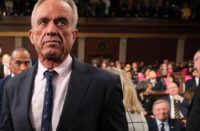House Speaker Mike Johnson abandoned a last-ditch effort to extend government funding into the spring, thereby averting a shutdown. Johnson faced resistance from his Republican colleagues and a growing number of allies, including President-elect Donald Trump, who expressed concerns about the billions of dollars added to the bill.
House Majority Leader Steve Scalise confirmed that the stopgap funding measure, introduced on Tuesday, was no longer on the table, and the future course of action remained unclear.
“There’s no new agreement at this point,” said Scalise.
Lawmakers were working against a Friday deadline to approve new spending. The withdrawn measure not only sought to extend funding until March 14, but also included provisions for disaster aid, healthcare policy extenders, and a pay raise for Congress members, among other things. The disaster relief section of the bill alone amounted to $110 billion.
On Wednesday, Trump and Vice President-elect JD Vance issued a statement criticizing Johnson’s approach. They urged Republicans to pass a simpler spending bill that doesn’t cater to all of the Democrats’ demands. They also asked House Republicans to raise the debt ceiling, which determines how much the government can borrow to cover its expenses.
The duo said, “Republicans want to support our farmers, provide disaster relief, and prepare our country for success in 2025. The only way to accomplish this is with a temporary funding bill WITHOUT DEMOCRAT GIVEAWAYS, along with an increase in the debt ceiling.”
However, the debt ceiling has not been a part of these negotiations, and Republicans generally oppose increasing it. The decision by Trump to introduce the issue into shutdown discussions adds a new twist to the legislative battle with just two days remaining before funding runs out.
At the U.S. Capitol, Vance did not respond when asked whether he and Trump supported a shutdown.
In the wake of the withdrawn legislation, tensions flared among members of the House Republican conference, primarily aimed at Johnson. Although the speaker had promised to steer clear of the large, year-end spending bills that conservatives detest, the final version was reminiscent of the smaller-scale versions that the party’s right-wing has protested against for years.
The slim Republican majority in the House meant Johnson needed Democratic votes to pass the bill, giving the minority more leverage to demand concessions during negotiations. House Minority Leader Hakeem Jeffries hinted at the Democrats’ influence amidst reports that Johnson might scale back the bill.
Jeffries warned, “Republicans have now unilaterally decided to break a bipartisan agreement that they made. House Republicans will now own any harm that is visited upon the American people that results from a government shutdown or worse. An agreement is an agreement. It was bipartisan. And there’s nothing more to say.”
White House press secretary Karine Jean-Pierre also urged Republicans to “keep their word.” She further added, “Republicans must stop politicizing this bipartisan agreement, or they risk hurting hardworking Americans and creating instability across the country.”
Johnson acknowledged that the bill was meant to be “very skinny” before certain “intervening things” occurred, such as the destruction caused by hurricanes earlier this year.
The speaker refuted Republican concerns that the continuing resolution was equivalent to an “omnibus” bill, a term used when Congress bundles the annual appropriations bills that fund numerous federal government agencies into one large legislative piece.
Johnson said, “This is not an omnibus, OK? This is a small [continuing resolution] that we had to add things to that were beyond our control. These are not man-made disasters. These are things that the federal government has an appropriate role in addressing.”
Despite Johnson’s promise to give members 72 hours to review the bill before voting, lawmakers expected to vote as early as Wednesday, leaving them with less than 24 hours to pore over the nearly 1,550-page text. Trump’s statement cast doubt on the way forward, leading to speculation that Johnson might abandon the current version of the bill and introduce a narrower funding extension that includes disaster relief.
Rep. Eric Burlison described the process as “a total dumpster fire,” expressing his dissatisfaction with Johnson and urging him to improve communication. Other members, like Texas Rep. Chip Roy, dubbed the bill the “Cramnibus,” while Florida Rep. Kat Cammack likened the measure to a “band-aid laced with fentanyl.”
The internal strife could lead to a challenge to Johnson’s speakership when the new Congress convenes on January 3. Rep. Thomas Massie, a Kentucky Republican, announced on Wednesday that he would not support Johnson in the speaker’s election.
Massie stated, “I’m not voting for him. This cements it.” He also claimed to have spoken to other members who shared his stance.
Johnson also faced opposition outside the House. Elon Musk, the co-head of Trump’s advisory Department of Government Efficiency, stated that any lawmaker who votes for this excessive spending bill deserves to be voted out in two years. Musk voiced his opposition to the bill numerous times throughout the day, which he labeled as “criminal.”
The stopgap measure was set to expire about two months into Trump’s second term, setting the stage for another budget battle as Republicans aim to pass Trump’s top priorities during his first 100 days. Although Republicans will control both chambers of Congress, House Republicans will operate with a thinner majority until vacancies left by members joining the Trump administration are filled.
This report was contributed to by Jaala Brown, Cristina Corujo, and Ellis Kim. Kaia Hubbard authored the original content.





